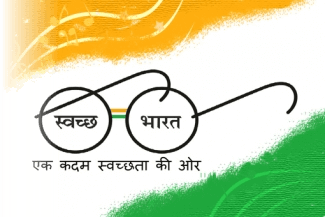Cleanliness
AN INITIATIVE TO ‘CLEAN SCHOOL GREEN SCHOOL
The Navodaya Vidyalayas have been envisaged as pace - setting institutions, centres of educational excellence, providing opportunities for development, not only to JNV students, but also to the children of neighbouring rural area schools through sharing of facilities. Leadership qualities and other educational concerns that are linked to community and national development are also inculcated through pace - setting activities. Interaction of staff and students of JNV with their counterparts in neighbouring schools, participation in joint community efforts, adaptation of village for awareness programs are some of the pace – setting activities under taken by Navodaya Vidyalayas. The concept of Swachh bharath mission is also another area of concern for Navodaya Vidyalaya as a pace setting activity for national development. Swachh Bharat Abhiyan is also called as the Clean India Mission or Clean India drive or Swachh Bharat Campaign. It is a national level campaign run by the Indian Government to cover all the backward statutory towns to make them clean. This campaign involves the construction of latrines, promoting sanitation programmes in the rural areas, cleaning streets, roads and changing the infrastructure of the country to lead the country ahead. This campaign was officially launched on 145th birth anniversary of the Mahatma Gandhi on 2ndof October in 2014 at Rajghat, New Delhi. It is launched as a responsibility of each and every Indian citizen to make this country a Swachh country.
Activities to be implemented for a Clean school Green school .
1. Constitute a club of green volunteers named ‘green club’ consisting of 10 members (5 boys and 5 girls) from each class and teacher volunteers to co ordinate the entire activities related to the ‘Swachh Bharath Mission’
2. Conduct regular ‘green club’ meeting at least once in a fortnight to evaluate the various activities taken up in the last fortnight and also plan for the activities for the next fortnight. Present the report of the activities conducted in the meeting.
3. Prepare thought provoking boards of reasonable size (green boards) and fix them permanently at important places in the school campus.
4. Invite well known personalities from outside to motivate the students and teachers regarding the importance of personal and public hygiene.
5. Instruct the green volunteers to find out the wastage of the food in the mess daily and record it to take necessary action to reduce the same.
6. Boards can be fixed in washing areas, washrooms, toilets, class rooms, dormitories, etc to conserve water and energy.
7. The committee constituted for green activities should ensure 24 hours running water in the wash rooms and toilets.
8. Provide facilities for hand wash including washing soap in every washing areas particularly in mess and dormitories.
9. Incorporate green thoughts in the school curriculum by including periods (at least one) weekly for all the classes named ‘green class’. Presentation of programme in the morning assembly.
10. Weekly cleaning drive with all the members of the school to keep the school spic and span should be taken up.
11. Plantation programme could be arranged regularly particularly during monsoon season.
12. Arrange various competitions related to the ‘Swachh Bharat’ by connecting with CCA activities.
13. Tapping of natural water from various sources including rooftop water and its preservation & purification for future use, if feasible.
14. Every school should be declared as ‘plastic free zone ‘ and sufficient boards in this respect may be displayed at various spots.
15. Educate students how to manage the waste materials scientifically by following the four R’s – Reduce, Recycle, Refuse and Reuse.
16. Follow ‘Green Protocol ‘ such as saplings as bouquets , decorations with natural materials for every function in the school very strictly.
17. Construct a functional bio-gas plant and a vermi- compost pit of small size for the recycling Bio-degradable waste materials.
18. Ink pen can be provided to all the students to avoid over dependence of plastics .
19. Start gardening and agriculture to utilise bio-degradable wastes as manure.
20. Public awareness programmes through street plays and videos may be taken up by the Green volunteers on the importance of personal health and hygiene .
21. Chlorination of water sources fortnightly.
22. Water testing twice year particularly portable water.
23. Cleaning of water tanks twice a year.
24. Daily visit to the main water sources and tanks and report thereof.
25. Provision for drinking water facilities in dormitories, academic block, mess, ground etc should be ensured. 26 .Provide waste disposal drums preferably in the areas of human settlement with proper boards.
27. Evaluate behaviour changes and capacity building among the children at the end of the academic session by using various tools on the impact of Swachh Bharath Abhiyan and recognise the same.
28. Liquid waste can also be made use of as manure for watering the plants adjoining boundary wall and other areas beyond Academic Block, Mess and Houses.
29. To promote “Swachhta Hi Sewa” as “Awareness Campaign” in the community through rallies, meetings with villagers at Block level and district level.
30. To adopt this campaign as “Pace Setting Activity” by way of cleaning the public places, Gram Panchayat Bhawan, Chaupals, Roads and places of common gathering of villagers.
31. Screening of Movie “Ek Prem Katha” based on Swachh Bharat Mission.
32. To organize “Swachhta Pakhwara” in the campus.

